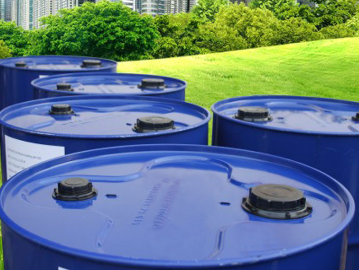
Amine curing agents are commonly used in the curing process of resin systems to significantly enhance the overall performance and efficiency of the curing process. In this article, we will discuss how amine curing agents improve the curing process in resin systems.
Resins are widely used in various industries, including aerospace, automotive, construction, electronics, and many others, due to their excellent mechanical, electrical, and thermal properties. However, resins in their liquid or semi-liquid state are typically unable to meet the desired performance standards required for end-use applications. Therefore, it is necessary to undergo a curing process to convert the liquid or semi-liquid resins into solid and highly cross-linked structures.
The curing process involves the chemical reaction between the resin and a curing agent, which results in the formation of a three-dimensional network of polymer chains. This network provides the cured resin with the desired properties, such as high strength, durability, chemical resistance, and thermal stability. Amine curing agents play a vital role in this curing process by accelerating the reaction rate, improving the extent of curing, and enhancing the overall performance of the cured resin.
Firstly, amine curing agents act as catalysts, promoting the curing reaction between the resin and the curing agent. They provide the necessary activation energy for the reaction to occur and greatly reduce the curing time. The presence of amine groups in the curing agent facilitates the formation of chemical bonds with the functional groups present in the resin, leading to the cross-linking of polymer chains. The amine groups have a nucleophilic nature, which allows them to attack the electron-deficient sites in the resin molecules and initiate the curing reaction. This catalytic effect of amine curing agents significantly improves the overall efficiency of the curing process.
Furthermore, amine curing agents enhance the extent of curing, resulting in a higher degree of cross-linking within the resin matrix. The cross-linking density determines the mechanical properties of the cured resin, such as stiffness, strength, and toughness. A higher cross-linking density leads to a more rigid and stronger material. Amine curing agents promote the formation of additional cross-links by reacting with unreacted functional groups in the resin and curing agent. This ensures that a greater portion of the resin is transformed into a highly cross-linked polymer, resulting in superior mechanical properties.
In addition, amine curing agents improve the thermal stability and resistance of the cured resin. The cross-linking process induced by amine curing agents forms a three-dimensional network of polymer chains, which greatly restricts the mobility of the molecular segments. This restriction prevents thermal degradation and improves the thermal stability of the cured resin. The presence of amine groups within the polymer network also provides excellent resistance to chemicals, corrosion, and abrasion, making the cured resin suitable for various demanding applications.
Furthermore, amine curing agents can be tailored to achieve specific properties required for different applications. By selecting the appropriate amine curing agent, engineers can control the reaction rate, curing temperature, and curing time of the resin system. This allows for the customization of the cured resin's properties, such as flexibility, adhesion, and impact resistance, to meet specific performance requirements. The versatility of amine curing agents provides a wide range of possibilities for developing advanced resin systems with tailored properties.
In conclusion, amine curing agents greatly improve the curing process in resin systems by acting as catalysts, enhancing the extent of curing, and improving the overall performance of the cured resin. Their ability to accelerate the reaction rate, increase the cross-linking density, and improve the thermal stability and resistance makes them indispensable in various industries. The customization capabilities of amine curing agents also allow for the development of advanced resin systems tailored to specific applications. Through the utilization of amine curing agents, the curing process becomes more efficient, leading to the production of high-performance resin products.